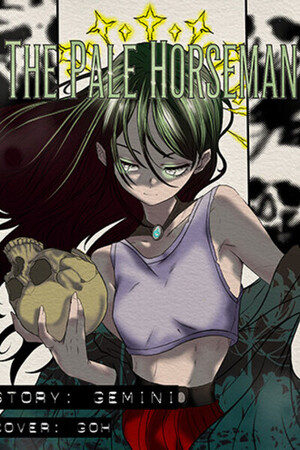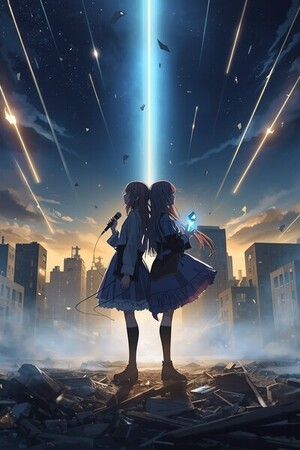Chapter 2:
Chapter 2: Whispers Beyond the Iron Line
Shadows Of The Empire
The chill of the northern wind gnawed at Marcus Domitus’s skin, sharp as the edge of a newly forged blade. He pulled his fur-lined cloak tighter, scanning the barren landscape from the observation deck of the Imperius. The warship soared steadily north, gliding over frost-covered forests and rivers locked in ice, their ancient flow halted under the harsh grasp of winter.
Below, the remnants of outposts dotted the wilderness, each one barely functional, ravaged by neglect and raiders. Yet even as Marcus noted the poor state of these garrisons, a deeper worry gnawed at his mind: where were the soldiers? Where were the citizens who once lived beyond Rome’s northern borders?
The forests were too quiet. Not even the wind carried the usual sounds of life.
“Tell me you feel it,” Marcus muttered.
Gaius Varro stood beside him, arms folded, watching the landscape with a soldier’s wariness. “Feel what? The fact that we’re flying into the ass-end of nowhere?”
“No,” Marcus whispered, his eyes narrowing. “The absence. There’s... something missing.”
Gaius gave him a sidelong glance but didn’t press. Instead, he turned back toward the control helm, adjusting the metal band that kept his dark hair out of his eyes. The gleaming brass consoles hummed under the crew’s steady touch, and the gentle thrum of the eterium core thrived beneath the deck, as regular as a heartbeat. Yet, even here in the safety of the warship, Marcus’s unease grew sharper with every passing mile.
He leaned closer to the map table where Seneca stood, adjusting dials and scrutinizing an intricate network of lines and glyphs. “How much farther to Castra Octaviana?” Marcus asked, tapping the glowing map.
Seneca glanced up, his gaze clouded with exhaustion. “Another hour, at most. If the core holds steady, we’ll arrive before nightfall.”
The words should have been reassuring, but they weren’t.
“Good,” Marcus muttered, though his thoughts were elsewhere. Something was deeply wrong. The kind of wrong that seeped into the air, invisible yet inescapable—like a sickness spreading silently, unnoticed until it was too late.
As they neared Castra Octaviana, a heavy mist gathered below them, rolling over the treetops like a tide. The dense fog seemed unnatural, thickening with every mile until the watchtowers of the outpost were barely visible beneath the cloud cover.
“Prepare to land,” Marcus ordered. His soldiers moved with precision, adjusting sails and stabilizers until the Imperius hovered gently above the main platform of the garrison. The metallic screech of landing clamps echoed across the frozen wilderness, followed by the hissing release of steam valves.
The ramp lowered with a groan, and Marcus led the way down, boots thudding against the iron grates. Gaius followed close behind, silent and alert, while Seneca trailed them, fidgeting with the buckles of his leather tool belt.
But as they descended into the outpost, Marcus’s stomach tightened. No one came to greet them. No watchmen. No gate guards. Only silence, so absolute it seemed to amplify every creak of their boots against the metal platforms.
“Where the hell is everyone?” Gaius muttered, drawing his sword from its scabbard.
Marcus knelt, running his hand over the frost-rimed surface of the platform. “Not abandoned,” he murmured. “Recently used. They were here.”
“And now they’re not,” Seneca added grimly, his eyes scanning the fog that blanketed the camp.
Marcus rose slowly, scanning the empty battlements. Then he saw it—a shape, hunched and motionless, slumped against the far wall.
“Gaius. There.”
They approached cautiously, weapons drawn. The figure was a soldier, his armor stained with soot and blood. But the oddest thing was the expression frozen on his face: not fear, but confusion, as if he had died without knowing why.
Seneca crouched beside the body, inspecting it with the detached curiosity of an engineer. “There are no wounds. No signs of poison.”
Marcus’s grip tightened around the hilt of his sword. “Then what killed him?”
Before anyone could answer, a faint noise echoed through the mist—a soft, distant scrape. Marcus stiffened.
“Gaius, stay close. Seneca, back to the ship.”
The noise grew louder. Something was moving through the fog, slow and deliberate. Marcus and Gaius pressed their backs against the wall, swords drawn, senses heightened.
Then, without warning, a figure emerged from the mist—an imperial soldier, staggering toward them with uneven steps. His armor was cracked, as if scorched from the inside, and his eyes... his eyes glowed faintly, with the same eerie shimmer as eterium.
“Identify yourself!” Marcus barked.
The soldier made no sound. He took another step, and then another, until he was just feet away.
Gaius shifted uneasily, his knuckles white against the hilt of his blade. “Something’s wrong, Marcus.”
Marcus nodded slowly, every instinct screaming danger. He stepped forward, sword raised. “Stand down, soldier. That’s an order.”
The man did not respond. Instead, his head tilted unnaturally to the side, as though his neck was barely holding it upright. Then, without warning, his hand shot forward—not with the sluggishness of a dying man, but with the speed of a predator.
Marcus barely managed to block the attack. His sword clanged against metal—a fist reinforced with jagged eterium shards.
“Gaius!” Marcus shouted, shoving the soldier back. “Help me take him down!”
The two men fought as one, moving in perfect synchrony, but the soldier fought with inhuman strength. His strikes were relentless, his limbs jerking like a marionette pulled by invisible strings.
“Eterium poisoning,” Seneca whispered from the edge of the ramp, watching the fight unfold. “He’s... not alive.”
Marcus’s heart sank. He had heard rumors—tales of soldiers exposed to unstable eterium fields, their minds lost, their bodies twisted into something less than human. But he had never believed them.
Until now.
The fight ended in a flash of steel. Marcus’s sword sliced clean through the soldier’s neck, and the glowing eyes flickered out like dying embers. The body collapsed in a heap, lifeless and heavy.
Breathing hard, Marcus wiped the blood from his blade. “We need answers,” he muttered, glancing at the lifeless form. “And fast.”
Seneca knelt beside the body, inspecting the eterium shards embedded in the soldier’s fists. “This wasn’t an accident. Someone did this deliberately—weaponizing soldiers with unstable cores.”
Marcus exchanged a grim look with Gaius. “The barbarians?”
“Maybe,” Seneca murmured. “Or someone worse.”
The words sent a chill down Marcus’s spine. He glanced at the fog-covered wilderness beyond the outpost, where shadows moved just out of sight.
Something was coming for them. And it was only a matter of time before it reached Rome.




Please sign in to leave a comment.